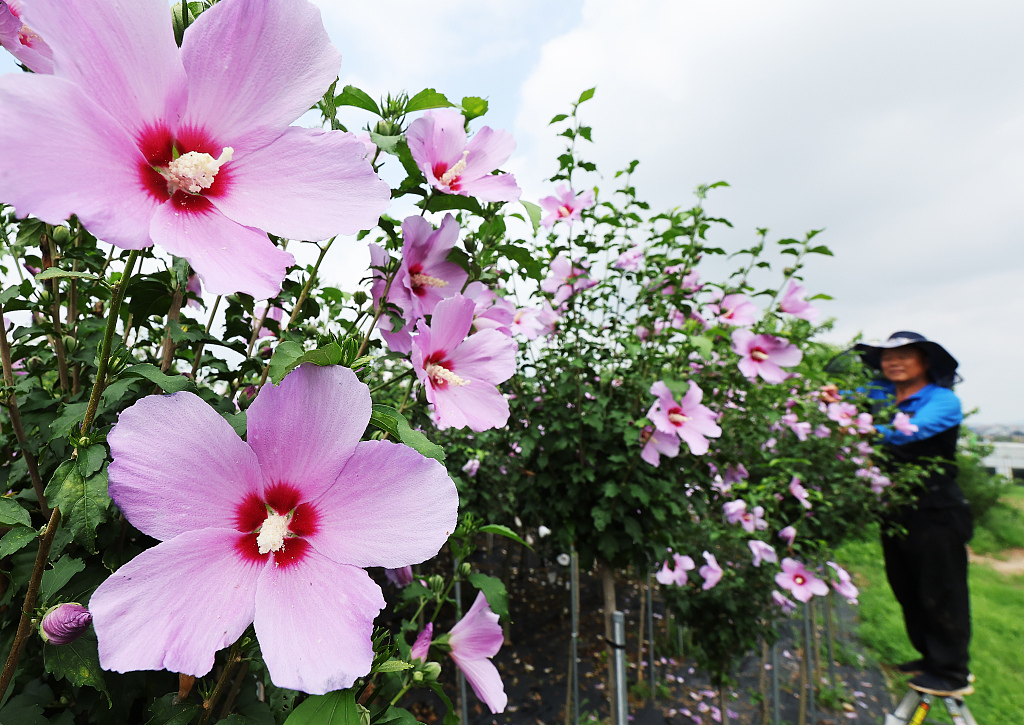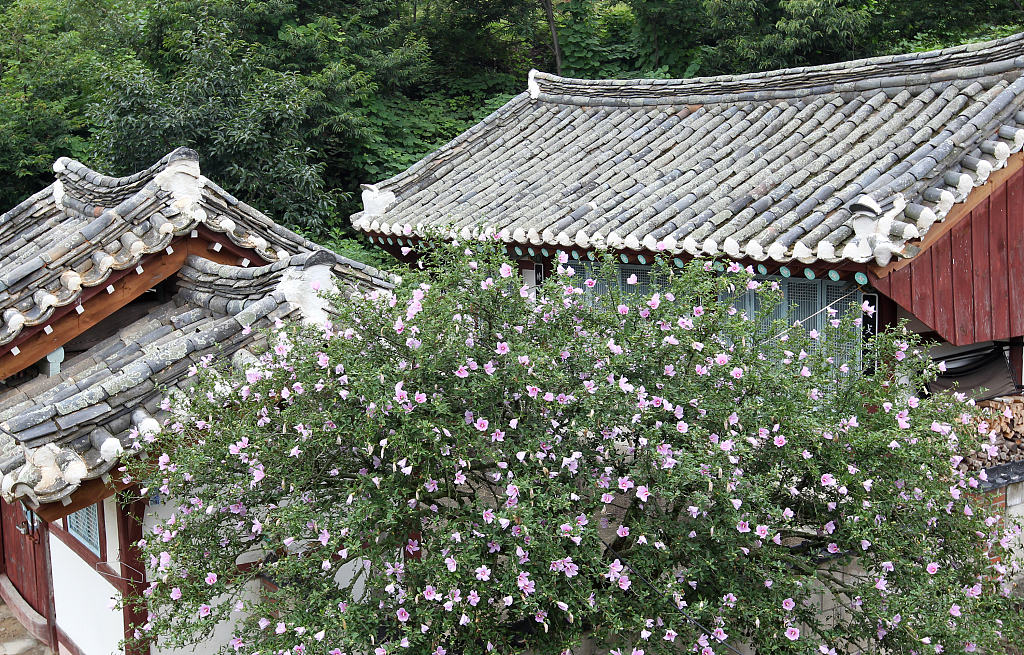The rose of Sharon, also known as Hibiscus syriacus, is South Korea's national flower. It is an East Asian flowering plant that has been in Korean gardens for centuries. A symbol of love and beauty, the South Korean government designated it the official national flower in 1968.

Blooming mokkeunhwa in South Korea.
Blooming mokkeunhwa in South Korea.
The flower is known as Mugunghwa or mokkeunhwa in South Korea. Mugunghwa appears in the Korean national anthem and means "eternal abundance." South Koreans regard the plant as a symbol of their culture and tradition.
The rose of Sharon has a special place in its people's hearts and minds. It represents beauty, purity, grace, elegance, resilience, and strength. Historically, it has been associated with bravery in the face of adversity. A reminder that we can persevere no matter what life throws at us.

Blooming mokkeunhwa in South Korea.
Blooming mokkeunhwa in South Korea.
The flower has also become associated with many traditional South Korean celebrations and festivals, such as Chuseok or the Harvest Moon Festival, where it is used to decorate homes for good luck.
Several songs are also dedicated to this beautiful blossom, which serves as a reminder of joy even in difficult times. Finally, the rose of Sharon is an everlasting symbol of hope to all Koreans. A symbol that will continue to inspire people for all time.
Hibiscus syriacus is a cold-tolerant deciduous shrub. The flower has long stamens and is mostly trumpet-shaped. They are typically pink but can also be purple or white.
Growing the rose of Sharon in your own garden will demonstrate that it is a plant that can withstand various conditions, such as frost, drought and pollution. However, if you want the best results, plant it in a warm, sheltered location with well-drained neutral soil and full sun exposure.
(All images via VCG.)
(If you have specific expertise and want to contribute, or if you have a topic of interest that you'd like to share with us, please email us at nature@cgtn.com.)